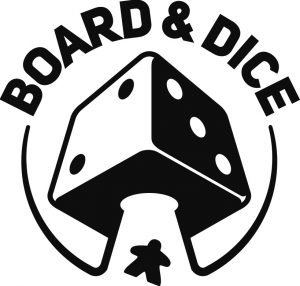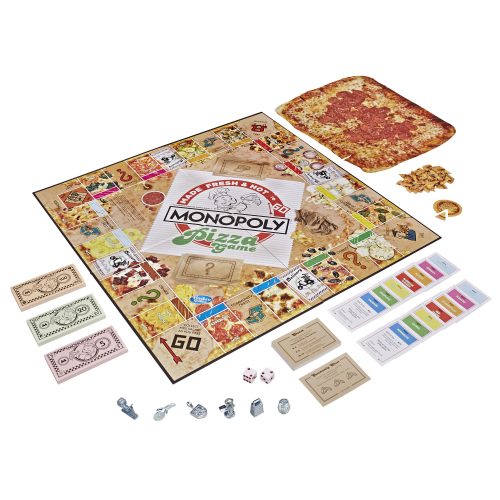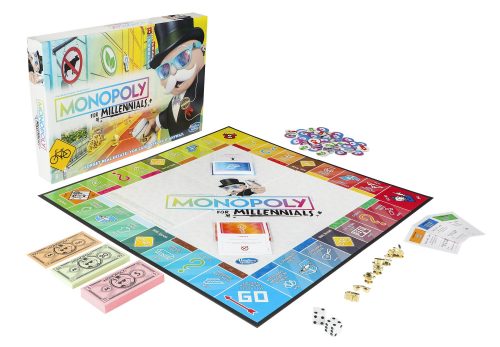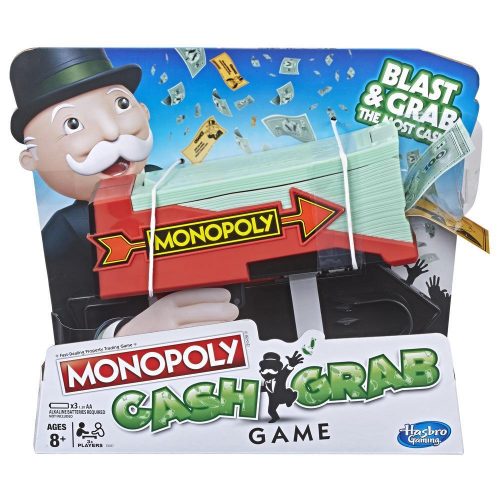 More than 60 Chess pieces carved from wood and bone during the 17th century have been found during excavations at Berezovo in norhtern Siberia. Eight fashioned from fossil ivory were exhibited at the most recent Women’s World Chess Championship.
More than 60 Chess pieces carved from wood and bone during the 17th century have been found during excavations at Berezovo in norhtern Siberia. Eight fashioned from fossil ivory were exhibited at the most recent Women’s World Chess Championship.
Archaeologists excavating a pottery workshop in Israel dating back 1,800 years found that the facility had recreational facilities for workers, including a spa and game room. Inside the game room were four game boards similar to Backgammon or Mancala.
A dot pattern carved in to a 4,000 year-old rock shelter in Azerbaijan was determined to be an example of a game known as 58 Holes, or Hounds and Jackals, another precursor to Backgammon. Previously found examples of the game from that period were limited to Mesopotamia, Egypt, and the Near-East.
Professor Manuel Eisner, with the Violence Research Centre at the University of Cambridge, studied 700 year-old coroner’s records to produce a map of murders in 14th century London. Among his discoveries:
Like in modern societies, homicide was most likely at weekends. Almost a third of all cases (44) occurred on Sundays. Sunday was the day when people had the time to engage in social activities – drinking and playing games that would occasionally trigger frictions leading to assault.
For example:
- In March 1301, an argument that resulted when three men interrupted a Chequers game being played by two others, ended with one of the interrupting men forcibly stripping one of the players of his clothes and stabbing the other in the chest with a dagger.
- In November 1321, two men got in to an argument playing the dice game Hazard inside a brewery. Outside after the game, one attacked the other with a sword then ran away and took refuge in a church. Sometime in the following week he escaped and was never caught by authorities.
- In December 1323, a tavern-keeper was stabbed by a customer that he had beaten in a game of Backgammon.

- Comments Off on Gamer Archaeology
2018 Scoreboard
01 Jan
Posted by David Miller as CCGs, Classic Board Games, Electronic Games, Modern Board Games, Other
 A group of senior high school students at the American British Academy in Muscat set a new record for computer processor built from dominoes. With 15,000 dominoes, they constructed a 5-bit adder that can sum numbers up to 63. [For a fascinating explanation of how this works, I suggest this video from the person who built the 4-bit adder.]
A group of senior high school students at the American British Academy in Muscat set a new record for computer processor built from dominoes. With 15,000 dominoes, they constructed a 5-bit adder that can sum numbers up to 63. [For a fascinating explanation of how this works, I suggest this video from the person who built the 4-bit adder.]
Keisuke Fukuchi of Japan took home the trophy at the World Othello Championship held in Prague, Czech Republic. At 11 years of age, he’s the youngest champion ever in the tournament’s 42 year history. On his flight home via All Nippon Airways, a congratulations was announced by the pilot, Kunihiko Tanida, the previous record holder for youngest Othello champion (which he had held since 1982).
 The World Chess Hall of Fame in St. Louis reclaimed the record for the world’s largest Chess piece. It previously held the record with a 14 foot tall king from 2012 to 2014 but was then eclipsed by a school in the town of Kalmthout, Belgium. The new record-making piece is a 20 foot tall black Staunton king with a base of 9 feet 2 inches and a weight of 10,860 pounds. It was hand carved from African Sapele Mahogany.
The World Chess Hall of Fame in St. Louis reclaimed the record for the world’s largest Chess piece. It previously held the record with a 14 foot tall king from 2012 to 2014 but was then eclipsed by a school in the town of Kalmthout, Belgium. The new record-making piece is a 20 foot tall black Staunton king with a base of 9 feet 2 inches and a weight of 10,860 pounds. It was hand carved from African Sapele Mahogany.
Magnus Carlsen of Norway successfully defended his World Chess Champion title against Fabiano Caruana of the United States by intentionally playing for a draw in standard time controls and then winning three straight in rapid tie-breaks. At the World Rapid Chess Championship, though, Carlsen tied with three others for second place. The winner in that event was Daniil Dubov of Russia. Following that was the World Blitz Chess Championship, where Carlsen again came out on top.
With a win at the London Chess Classic, Hikaru Nakamura of the United States secured first place in the multi-tournament Grand Chess Tour series.
Among artificial entities, Chess engine Stockfish won both Rapid and Blitz categories of the Chess.com Computer Chess Championship. Houdini came in second in Rapid, where the final match took place over 200 games, and Komodo came in second in Blitz, where the final was 300 games.
Nigel Richards won his fourth World Scrabble Championship with a final game score of 575-452, that achieved with such words as “groutier” (68 points), “zonular” (100 points), and “phenolic” (84 points). His opponent managed “maledict” for 95 points.
A new edition of The Official Scrabble Players Dictionary makes legal play out of “sheeple”, “ew”, “OK”, “yowza”, and “zomboid”. It also adds another q-without-a-u word, “qapik”, a monetary unit from Azerbaijan.
Javier Dominguez of Spain, who last year finished in second place, managed a win in this year’s finals, taking home $100,000 and the trophy for Magic: The Gathering World Champion.
Akiko Yazawa of Japan, cancer survivor, won her second World Backgammon Championship title.
Topping a field of 76 contestants from 46 countries, Quetzal Hernandez of Mexico won the Catan World Championship in Cologne, Germany.
Elena Short of Ukraine finished first in both the women’s classic and women’s blitz sections of the World Championship in Draughts 64.
Wu Yiming, 11 years old, of China became the country’s youngest female professional Go player.
In late December 2017, thirteen year-old Que Jianyu appeared on Chinese television and solved three Rubik’s Cubes while continuously juggling them, and did so in a world record 5 minutes 6.61 seconds. Then in December of this year, he went on Italian television and broke his own record by just over 4 seconds. Between these two events, he also broke speed records for solving three Rubik’s Cubes simultaneously with hands and feet (1 minutes 36.39 seconds) and solving a single Rubik’s cube while hanging upside down (15.84 seconds).
At the Cube for Cambodia event in Melbourne, Australia, Feliks Zemdegs solved a 3×3 Rubik’s Cube in a world record 4.22 seconds.
Max Park of the United States set four new Rubik’s Cube world records. He solved:
- 4×4 in 18.42 seconds and 5×5 in 37.28 seconds at SacCubing in Roseville, California.
- 6×6 in 1 minute 13.82 seconds at WCA Asian Championship in New Taipei City, Taiwan.
- 7×7 in 1 minute 47.89 seconds at West Coast Cubing Tour in Fresno, California.
Several new world records were set for solving Rubik’s Cubes while blindfolded. At the end of the year, the records stand as follows:
- 16.55 seconds for 3×3 blindfolded, set by Max Hilliard at the Puget Sound NxNxN in Tacoma, Washington.
- 1 minute 26.41 seconds for 4×4 blindfolded set by Kaijun Lin at the Please Be Quiet Beijing in Beijing, China.
- 3 minutes 1.01 seconds for 5×5 blindfolded set by Stanley Chapel at the Shaker Fall in Shaker Heights, Ohio.
Grégoire Pfennig of Belfort, France built the largest order working Rubik’s Cube puzzle, 33×33. Imagine how long it would take to solve that!
A group of four in Moscow set a world record for the number of escape rooms attended in 1 day, 22.
At the World Rummikub Championship in Jerusalem, Kohei Numajiri of Japan came in first place, Sasha Erlich of Israel came in second, and Matthijs Delvers of Netherlands third.
Ankush Khandelwal of the U.K. won the Pentamind World Championship, a tournament that consists of matches in Quoridor, 7 Wonders, Acquire, Liar’s Dice, and Chess 960.
Brain Games held its first ICECOOL World Championship event at BaltiCon in Riga, Latvia, where Khanh Hung Dong of Canada took home the trophy and a prize of a weekend for two at Snow Village in Lapland.

- Comments Off on 2018 Scoreboard
Paper Money Highlights
25 Dec
Posted by David Miller as Card Games, Electronic Games, Modern Board Games, RPGs, War Games
 Spin Master has singed a 3 year licensing agreement with Warner Bros. Consumer Products for DC comics properties. The agreement covers games, puzzles, action toys, remote control and robotic vehicles, and water toys beginning in spring 2020.
Spin Master has singed a 3 year licensing agreement with Warner Bros. Consumer Products for DC comics properties. The agreement covers games, puzzles, action toys, remote control and robotic vehicles, and water toys beginning in spring 2020.
PlayMonster (5 Second Rule, Yeti in My Spaghetti) is partnering with Audax Private Equity to finance additional expansion through “organic growth and add-on acquisitions.”
Goliath continues to grow, acquiring U.K. based Vivid Toy Group and moving in to the Italian market through a partnership with distributor MacDue. With the acquisition of Vivid, Goliath plans to launch 20 new games in the U.K. market next year.
Drumond Park has signed on with Tomy UK as exclusive distributor for all the former’s games in the U.K. and Ireland.

NSKN Games (Dice Settlers, Teotihuacan) and Board & Dice Games (Beet Empire, Dice Brewing) are merging. The combined company will continue operations under the Board & Dice name.
With the passing of designer Greg Stafford and earlier Stewart Wieck, of the games’ latest publisher, Nocturnal Media, the RPGs King Arthur Pendragon and Prince Valliant have been transferred again to Chaosium.
After a couple of messy PR situations involving insensitive or extremist material in game books, Paradox Interactive is stepping back from the publishing business but not abandoning the World of Darkness altogether. Instead, Paradox is moving to a licensing model and integrating White Wolf’s operations in to the parent company. Modiphius Entertainment, which was already handling distribution, is taking over development and publication for Vampire: The Masquerade 5th Edition. This will include production of various supplements (such as The Fall of London Chronicle and Players Guide), as well as oversight of other licensees (Onyx Path Publishing, Elderwood Academy, Dogmight Games, and others).
Impressions Game Distribution Services is being acquired by Flat River Group. The latter is a toy and game distribution company with business in e-commerce and crowdfunding fulfillment. Impressions founder Aldo Ghiozzi will continue with the combined company.
Scientific Games and Hasbro have extended their license agreement through 2025. The agreement covers the use of Hasbro properties, including Monopoly, Battleship, Clue, Yahtzee, and others for lotteries, slot machines, online gaming, and now also table games.
- Comments Off on Paper Money Highlights
Monopoly Pizza Game substitutes pies for property. Players collect slices while trading toppings, from traditional mushroom and pepperoni to contemporary pineapple. Monopoly Pizza comes in a delivery box with player tokens that include a cheese grater, rotary slicer, and delivery bicycle.
The depressing box-cover slogan on Monopoly for Millennials is: “Forget real estate. You can’t afford it anyway.” Instead of cash, players collect experience points by visiting such exciting destinations as a vegan restaurant or their friend’s couch. The tokens in this one include sunglasses, a bicycle, and a pound or number sign (also known as the hashtag symbol).
Monopoly Cash Grab drops all the pretense, along with random dice rolls, negotiation, board, and extended game play. It’s a battery-operated toy gun that shoots Monopoly money, with some interspersed Chance cards, rapid-fire in to the air. The Chance cards may allow players to do such things as exchange their wad with another player but, otherwise, the goal is simple. Grab as much as you can.
- Comments Off on Three Monopolies, No Real Estate
Trending
- Massdrop.com
- Oh the Irony—Illuminati Card Game Continues to Inspire Conspiracy Theorists
- Home
- Footprints, an Educational Ecology Game
- USPS Adds Board Game Flat Rate Box
- Baila, the Estonian Drinking Card Game
- Crystal Caste Wins Dice Patent Suit Against Hasbro
- Mirror Game, Red and Blue
- Are Board Games Dangerous?
- The Truth About Dominoes On Sunday in Alabama
Archives
Most Popular Articles
- Oh the Irony—Illuminati Card Game Continues to Inspire Conspiracy Theorists
- The 20 Most Valuable Vintage Board Games
- The Truth About Dominoes On Sunday in Alabama
- Sequence Game, and Variants
- USPS Adds Board Game Flat Rate Box
- Baila, the Estonian Drinking Card Game
- The 13 Most Popular Dice Games
- Are Board Games Dangerous?
- Guess Who? The Naked Version
- What Happened to the Jewel Royale Chess Set?
Recent Posts
- Toy Fair 2019—Breaking Games
- Talisman Kingdom Hearts Edition
- Toy Fair 2019—Winning Moves
- Toy Fair 2019—Games Workshop
- Toy Fair 2019—Star Wars Lightsaber Academy
- Toy Fair 2019—Stranger Things Games
- Toy Fair 2019—HABA
- Licensing Roundup
- Game Bandit
- 2018 A Difficult Year For Hasbro But Not For D&D Or MtG
Recent Comments
- on Toy Fair 2019—Winning Moves
- on Game Bandit
- on Second Look—Dungeons & Dragons Waterdeep Dragon Heist
- on Crowdfunding Highlights
- on Beyblade SlingShock
- on Game Bandit
- on Game Bandit
- on Watch This Game!, the Board Game Review Board Game
- on Second Look—Vampire: The Masquerade 5th Edition
- on Palladium Books Loses Robotech IP License, Cancels Five-Year-Overdue Robotech RPG Tactics Kickstarter






